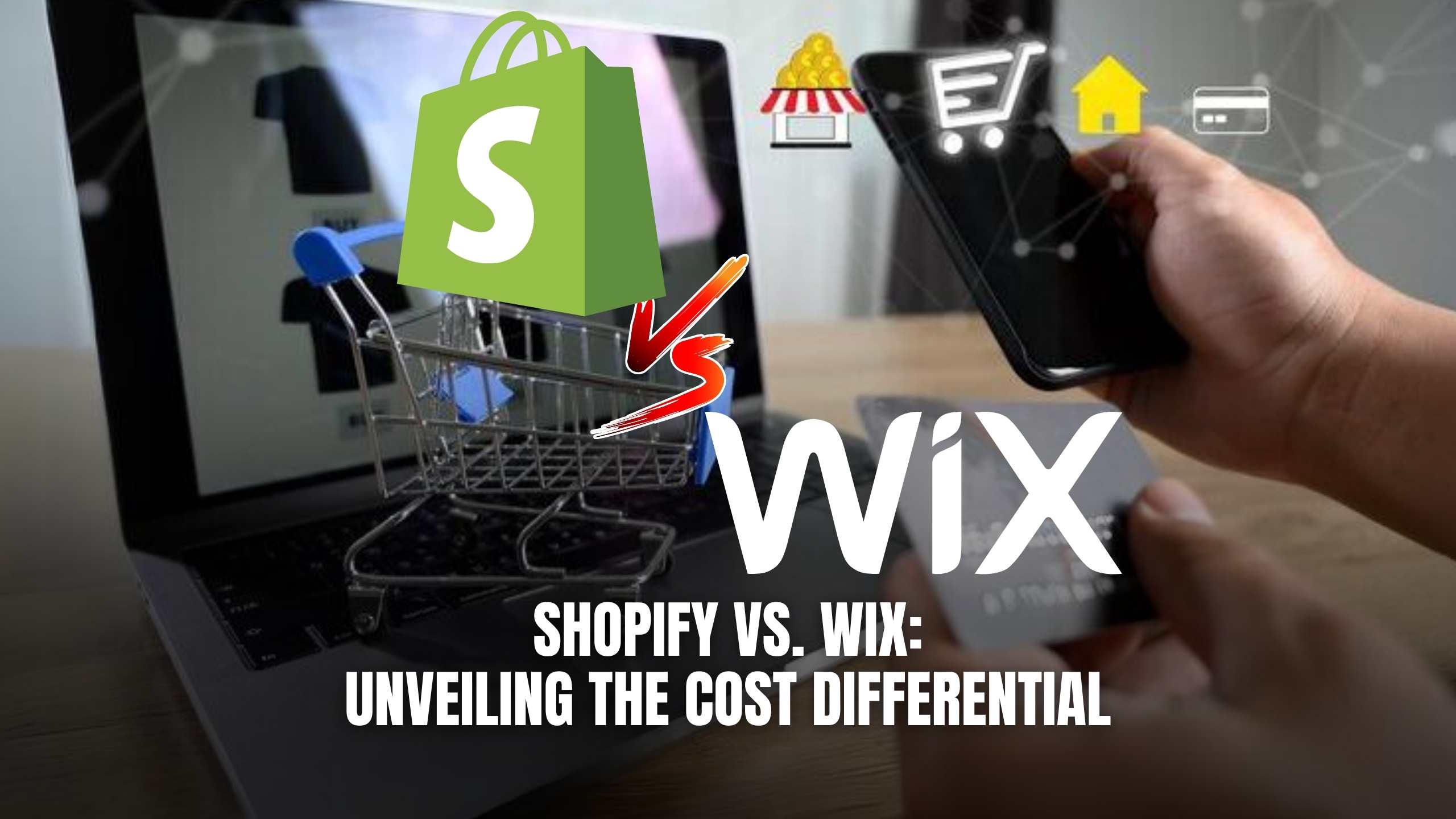Shopify vs. Wix: Unveiling the Cost Differential


Shopify vs. Wix: Unveiling the Cost Differential
Choosing the right e-commerce platform is crucial for businesses looking to establish a robust online presence. Shopify and Wix are two popular platforms that offer powerful features and flexibility, but they differ in terms of pricing structure and overall cost. In this blog post, we’ll delve into the cost differentials between Shopify and Wix, helping you make an informed decision based on your budget and business requirements.
1. Understanding Shopify Pricing
Shopify offers various pricing plans tailored to different business needs and budgets. The Basic Shopify plan starts at $25 per month, offering essential features for launching a small online store. The Shopify plan at $79 per month and the Advanced Shopify plan at $299 per month provide additional features such as gift cards, professional reports, and advanced analytics. Additionally, Shopify charges transaction fees for payments processed through external gateways, ranging from 2.9% + 30¢ to 2.4% + 30¢, depending on the plan.
2. Exploring Wix Pricing
Wix, on the other hand, offers a range of pricing plans for e-commerce businesses. The Business Basic plan starts at $165 per month, offering basic e-commerce features and online payment processing. Unlike Shopify, Wix does not charge transaction fees for payments processed through external gateways.
3. Comparing Additional Costs
In addition to monthly subscription fees, businesses should consider additional costs associated with each platform. Shopify charges transaction fees for payments processed through external gateways, while Wix does not. However, Wix may charge transaction fees for certain payment gateways, such as PayPal and Square. Additionally, businesses may incur costs for premium themes, apps, and add-ons to enhance functionality and customization on both platforms.
4. Factoring in Scalability and Growth
When comparing Shopify vs. Wix in terms of cost, businesses should also consider scalability and growth potential. Shopify’s pricing plans offer scalability, with higher-tier plans providing advanced features and capabilities to support growing businesses. Wix, while more affordable initially, may lack the scalability and flexibility needed for businesses with ambitious growth goals. As businesses expand and require more sophisticated features, they may need to upgrade to higher-tier plans or migrate to a different platform altogether.
5. Considering Long-Term Costs and ROI
Ultimately, the decision between Shopify and Wix comes down to evaluating long-term costs and return on investment (ROI). While Shopify may have higher upfront costs, its robust features and scalability may offer greater value and ROI in the long run, particularly for businesses with ambitious growth plans. Wix, with its lower initial costs, may be more suitable for small businesses and startups with limited budgets and simpler e-commerce requirements.
Relevant SaaS Products:
- Shopify: Shopify is a comprehensive e-commerce platform that offers powerful features and scalability, making it a preferred choice for businesses looking to grow their online presence.
- Wix: Wix is a user-friendly website builder that offers e-commerce functionality, catering to businesses with simpler requirements and limited budgets.
- Stripe: Stripe is a payment processing platform that integrates seamlessly with Shopify, enabling businesses to accept online payments securely and efficiently.
- PayPal: PayPal is a widely used payment gateway that integrates with both Shopify and Wix, providing flexibility and convenience for online transactions.
- QuickBooks: QuickBooks is accounting software that integrates with Shopify and Wix, facilitating seamless financial management and reporting for e-commerce businesses.
Conclusion
When comparing Shopify vs. Wix in terms of cost, businesses must consider various factors, including monthly subscription fees, transaction fees, additional costs, scalability, and long-term ROI. While Shopify may have higher upfront costs, its robust features and scalability make it a preferred choice for businesses looking to establish and grow their online presence. Wix, with its lower initial costs, may be suitable for smaller businesses with simpler e-commerce requirements. Ultimately, businesses should weigh the pros and cons of each platform and choose the one that best aligns with their budget and growth goals.
Unlock Secret Deals and Save Big!
Considering Shopify vs. Wix for your e-commerce store? Unlock free member-only deals with Subscribed.fyi and access exclusive discounts on essential SaaS tools for building, managing, and growing your online business. Sign up today to unlock savings on e-commerce platforms, payment gateways, accounting software, and more. Take control of your expenses and maximize your ROI with Subscribed.fyi Deals!
Relevant Links:








